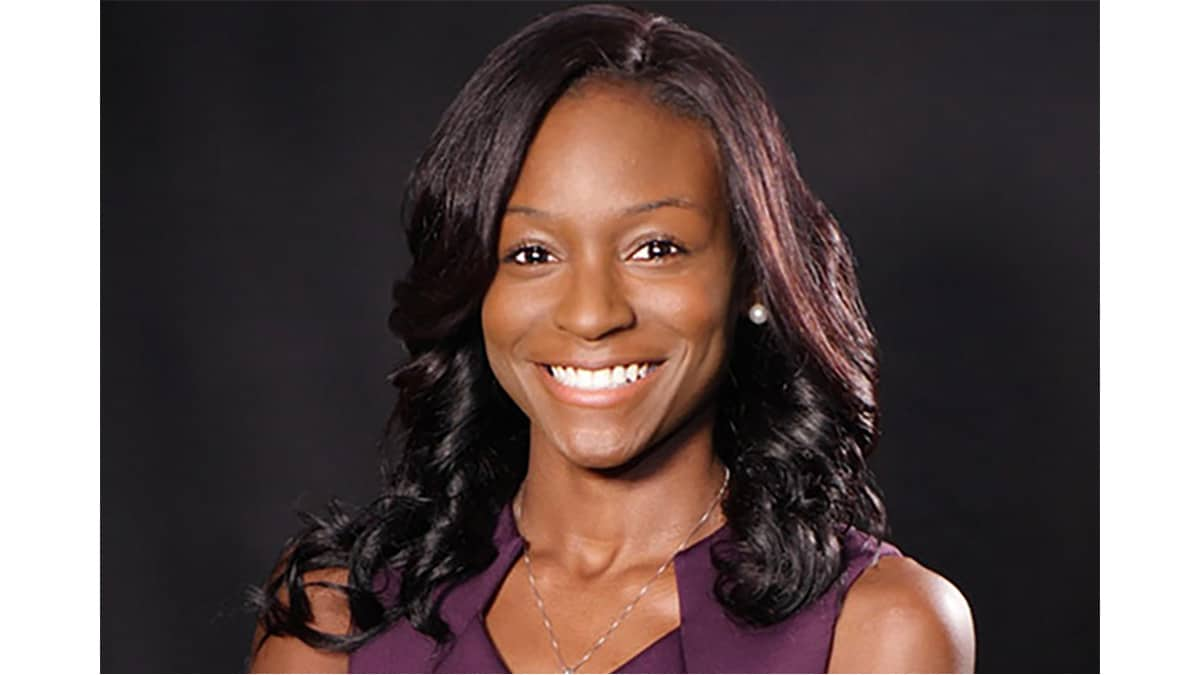At a glance
When she was 7 years old, Chelsee was diagnosed with platelet storage pool disorder. With this condition, parts of platelets are absent, reduced, or unable to enter the bloodstream. This impacts her ability to form clots and stop bleeding.

Chelsee's story
Chelsee was a healthy and active child who enjoyed playing sports, especially cheerleading. She was a "flyer," one who is lifted in the air during stunts. The only atypical thing in her life was that she would get heavy nosebleeds, which were sometimes so bad that she would pass out. When she was 7 years old, Chelsee was at a close friend's house for a sleepover and had a nosebleed. This wasn't the first time she had a nosebleed at this friend's house, but this one was particularly bad. Her friend's mother, who worked at a hospital, encouraged Chelsee's mom to bring her into the hospital for testing.
Chelsee was diagnosed with platelet storage pool disorder, a condition where parts of platelets (blood cells that help the blood form clots) are absent, reduced, or unable to enter the bloodstream. This impacts their ability to form clots and stop a bleed. Although Chelsee's grandfather had severe nosebleeds and her mother bled heavily when giving birth to Chelsee, the diagnosis was still a surprise. It felt like a whirlwind of information with new limitations.
Chelsee's diagnosis didn't stop her one bit. In fact, her diagnosis opened a new door to opportunities that she otherwise wouldn't have known about or participated in: camps specifically for children with bleeding disorders. "Camp was fun! We would stay in the cabins and go zip lining, canoeing and paddle boarding, sometimes fishing. They had a pool and a huge gym and there were so many different activities that we could do."
Chelsee explained that camp was both entertaining and a break from "normal life." It was comforting knowing that she could be active and know there were doctors and nurses on-site in case of emergencies. It was also nice to be around other kids with bleeding disorders. "At school or in regular life, you can explain your disorder to someone, and they might understand it, but they don't really know everything you have to go through. So camp was a place where I could relate to other people that have the same bleeding disorder, or who may have had a disease worse than me."
Chelsee attended camp until she was 18 years old and then she worked as a camp counselor until she turned 21. Camp opened her world up to a local community of people that Chelsee could relate to and learn from. Then she attended an annual meeting hosted by the National Bleeding Disorders Foundation (NBDF) in Orlando and she said, "That is really when my eyes were opened. I didn't know that there were that many bleeding disorders, so many treatments, I didn't even know there were that many doctors that specialized in blood disorders! I didn't think that this community was a whole United States type of thing. I thought it was only in Georgia. I didn't know there were camps all over the country."
At one of the annual meetings, Chelsee learned about NBDF's National Youth Leadership Institute (NYLI), a leadership program for young adults (ages 18-24) with bleeding disorders. She joined the advocacy track of NYLI because, at the time, she was working at the Georgia State Capitol and was eager to learn more about politics, policies, and insurance coverage. Through the program, Chelsee traveled around the United States speaking at events, hosting events, participating in outreach activities, and educating other young people about bleeding disorders. Though she is now too old to participate in NYLI, she is still actively involved with NBDF and continues to teach young people how to speak to their legislators about their story so they can be active voices in the bleeding disorders community.
Chelsee's advice for parents of kids with bleeding disorders—particularly those who don't have a known family history of a bleeding disorder—is to get your kids involved at a young age. Although camp was initially scary and out of their comfort zones, both Chelsee and her mom were grateful for the wealth of information and education they got from attending. There is a large community of people with bleeding disorders, and there are organizations that are full of resources to help you cope with and learn about your disorder. "The community is always there to help, and it's a phenomenal community to be a part of."
If she could talk to her younger self, Chelsee would say that, even though it may not feel like it sometimes, everything is going to be fine: "My advice to my younger self would be do not take no for an answer and continue to strive for the things you love in life. Just because you have a bleeding disorder, does not mean that your life is over. You can still have a regular life."
CDC thanks Chelsee for sharing her story.
If you would like to share your personal story, please contact us at Contact CDC-INFO.
